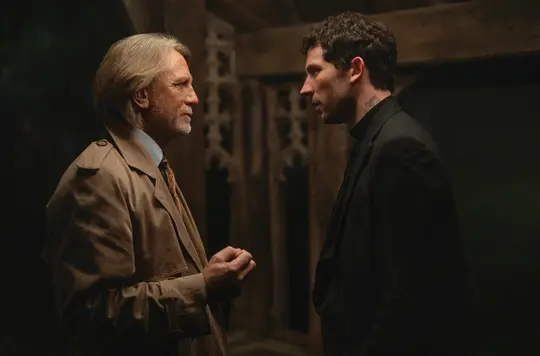10 May 2025
Critical thinking: How do we discern truth from fiction?
Ivan Radford

Ivan Radford encourages us to stay alert and seek God’s voice in an age of misinformation.
When I was younger, I liked to think that if you edited any entry on Wikipedia, no matter what you wrote, the universe would change to make it real. After all, if the internet says something, it must be true, right? That’s not quite how Wikipedia works but, in 2025, it’s harder than ever to trust everything we see around us.
Fake news can come in many different forms, including disinformation – something deliberately intended to be false – and misinformation – when something false is shared unknowingly.
The way we consume information in so many different places, not to mention content generated with artificial intelligence, can make it harder to distinguish fact from fiction. Social media and search engine algorithms deliberately personalise what we see to show us things that reinforce our opinions, creating echo chambers that isolate us from other perspectives we could learn from. These algorithms are programmed by companies who have their own motivations, such as engagement and profit.
The rush of information to our heads also means we have less time to process any of it. False information tends to be shared on social media more frequently than true stories, because it’s more emotionally charged and attention-grabbing. For convenience, however, we often rely on the first thing we see, whether that’s a post by an influencer, a news headline or an AI-generated summary of search results.
If the idea of ‘media studies’ was once undervalued, it’s now an essential skill for anyone navigating our world. Lies and fake news can perpetuate injustice, cause social divides or spread harmful ideas. They can lead people – including Christians – away from living the way God wants us to.
1 John 4 reminds us to ‘not believe every spirit, but test the spirits to see whether they are from God’. Romans 12:2 encourages us not to ‘conform to the pattern of this world, but be transformed by the renewing of your mind’. We are not called to go into this world and be blown about by everything around us: we are called to stand firm in our faith, holding on to the truth of the gospel above all things.
That means not believing everything we see, but engaging in critical thinking. Ask yourself: Who created this and why? Are they trusted and reputable? Is there any evidence to validate it? Is any other credible source also saying this? Where and how did you come across it?
We have never had to process such a high volume of information before in human history. The other key habit to develop, therefore, is silence. Psalm 46:10 encourages us to ‘be still, and know that I am God’. When you have a quiet minute, how often do you reach for your phone to occupy or distract your mind? Could you instead embrace the quiet and pray?
How do you discern God’s voice amid the noise? Like love, or perhaps a bad case of indigestion, you feel it. It is only through intentional, direct interaction with God that we can grow in our relationship with him. However you do it – online or offline – knowing Jesus and seeking out his voice and will for you is the greatest truth for any of us. The more we listen for his voice, the more we recognise it – and the more we recognise it, the more we can ask God to help us discern what is true, and what truly matters.
Pause and reflect
- What tools, such as Lectio 365 or the Bible app, can help you take time to pray and study Scripture?
- Consider the territory’s vision and values and mission priorities. How can they help you discern God’s truth in the world?
- Read Philippians 4:5–9. Pray for God’s peace to guard your heart and mind.
Written by

Ivan Radford
Managing Editor











